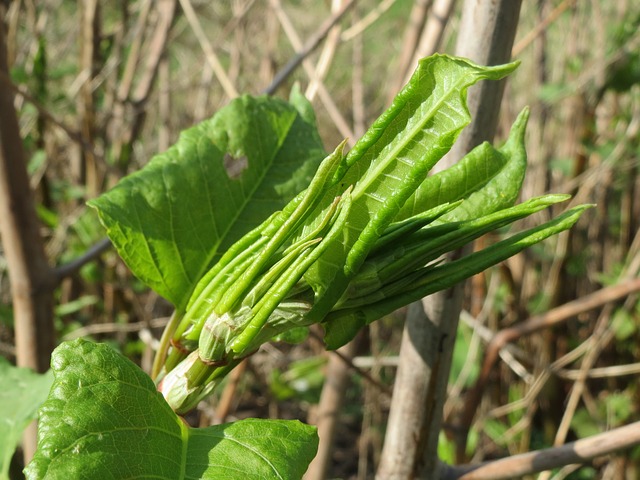
Japanese knotweed is a highly invasive plant that grows quickly and can cause significant damage to buildings, roads, and other types of infrastructure that stand in its way.
If you've discovered Japanese knotweed on your property, you're probably eager to get rid of it as soon as possible - but don't be too hasty!
It's extremely important to take care when disposing of Japanese knotweed. Under UK law, those who help the plant to spread - even accidentally - may face:
- Up to 2 years in prison
- Or a fine of up to £5,000
How to Dispose of Japanese Knotweed (Without It Spreading!)
Japanese knotweed didn't become such a widespread problem in this country by pure coincidence. The plant's rhizome root system allows it to spread from one location to another with frightening ease - a single small root fragment can quickly grow into a whole new plant!
This is why you simply can't be too careful when disposing of Japanese knotweed. Failure to follow the law can end up fostering further knotweed growth, and frankly, this species is doing just fine for itself without any extra assistance from us.
Japanese knotweed can't be thrown onto the compost (unless you seal it away to rot for at least 6 months before hand), and you can't take it to the tip. So, how can you dispose of Japanese knotweed safely?
What’s the Right Way to Dispose of Japanese Knotweed?
While it's not illegal to dispose of Japanese knotweed yourself (as long as you know exactly what you're doing), it's usually preferable to hire a contractor who knows how to dispose of Japanese knotweed properly.
Broadly speaking, there are two ways to deal with Japanese knotweed, both of which are generally better left to the experts:
- Excavation - The Japanese knotweed is dug up using heavy earth-moving machinery, then transported to a specialist landfill site with the relevant environmental permit (taking care at all times not let any contaminated soil or plant matter find its way into the wild).
- Herbicide - Over a number of months, the Japanese knotweed is repeatedly sprayed with herbicide to control the plant's growth.
Although there are certain situations where option 1 may be preferable (e.g. if there is a tight deadline for clearing the site of Japanese knotweed), herbicide application is by far the cheaper option and is usually sufficient to prevent Japanese knotweed from causing any long-term problems.
Japanese Knotweed Removal Services From Total Weed Control
When it comes to Japanese knotweed, it’s best to ensure that it is removed properly first time around. This is the best way to ensure that Japanese knotweed doesn’t become a recurring issue, or you don’t accidentally get fined for it spreading. Total Weed Control specialises in herbicide-based Japanese knotweed control, and we offer this service throughout South Wales, the South West and beyond.
We are registered with the Property Care Association, and our reports are approved by the RICS (Royal Institute for Chartered Surveyors), so you can rely on us to handle your Japanese knotweed problem in accordance with all applicable laws and regulations.

FREE Japanese Knotweed Survey >
Last updated 5th July 2022
